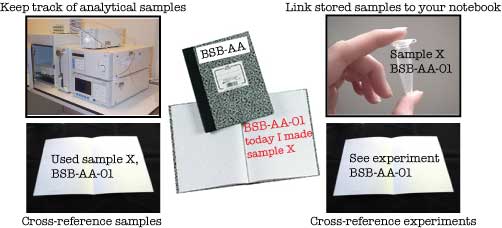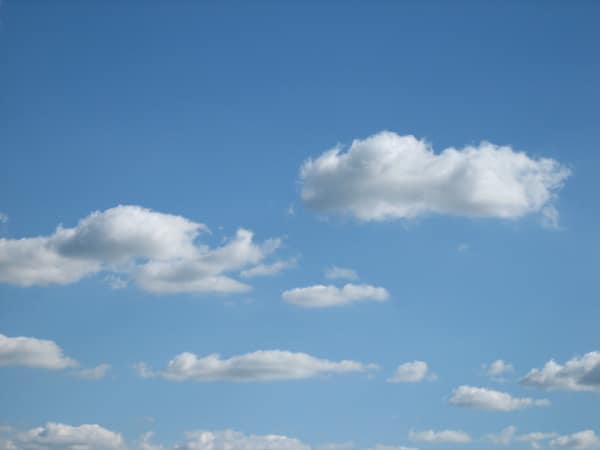How Accurate are Your Pipettes?
You probably use and rely them more than any other tool in the lab, but just how accurate are your pipettes?
Join Us
Sign up for our feature-packed newsletter today to ensure you get the latest expert help and advice to level up your lab work.
Search below to delve into the Bitesize Bio archive. Here, you’ll find over two decades of the best articles, live events, podcasts, and resources, created by real experts and passionate mentors, to help you improve as a bioscientist. Whether you’re looking to learn something new or dig deep into a topic, you’ll find trustworthy, human-crafted content that’s ready to inspire and guide you.

You probably use and rely them more than any other tool in the lab, but just how accurate are your pipettes?

As far as your lab work is concerned, your lab book is the source of all knowledge. Making it easy to find things in there will help. Here’s how to do it.

Bioscientists are generally nature-lovers at heart, but the average bio lab is incredibly wasteful. Here are some ways to reduce your lab’s environmental impact.
Cover letters are possibly the most important documents you will write in your career because they can open or close the door to your dream job. But, surprisingly, people often under-estimate their importance and assume that they are just the lesser companion to the CV/resume. Of course, that’s not the case. Your cover letter should…

Amid growing recognition that a successful scientific career requires skills beyond scientific acumen, institutions are racing to provide management training for newly minted principal investigators. Young scientists spend years conducting complicated experiments and crunching data, but when they are finally given the keys to their own lab, they suddenly face tasks they were never trained…
Only a handful of people ever become world experts in their field. The rest attain somewhere between a functional and world expert level of knowledge. So what makes the best better than the rest? Are they born with greater knowledge? Intelligence? Inner strength? Well, the latter is the more likely. Although some world experts are…

Relating to my recent comments on seminars, a beginning grad student or undergrad researcher might wonder why journal club is such a good thing. Or you might not be wondering, since the benefits are more or less the same: digesting, discussing, and analyzing research findings. But whether or not you realize the benefits of journal…
Please read and pass this life-saving information on to your friends. A chemical that all of us use in the lab has turned out to be highly dangerous. It is an asphyxiant, can cause severe burns and is a contributor to the greenhouse effect. Medical organizations all over the world confirm it to be responsible…

After all that hard work, you finally have your PhD. Now what? If your career choice is academic research, your first post-doc position beckons. The choice of where, and with whom, to take up a post-doc position is a very important one as it is at the post-doc stage where publications are required to move…

Wide eyed and wet behind the ears, the rookie researcher steps into the lab for the first time. Armed with several years’ knowledge mined from text books, lectures and undergrad labs he feels ready to take his place amongst the worldwide legions of scientists who battle daily in the pursuit of knowledge. Little does he…

For every half-way decent mentor or adviser that an aspiring scientist comes across, it sometimes seems as though there is another lurking, who is simply a jerk*. Let’s face it – scientists aren’t consistently “people-persons.” Maybe they had bad mentors, and inadvertently end up passing on the karma. Or maybe science just attracts a higher-than-average…

….statistics. The very word strikes fear into the heart of many a biologist (including me). In an article published earlier this year, Cumming and co-workers of La Trobe University, Melbourne gave a very useful rundown of common mistakes made when using statistical error bars in biology and suggested a number of rules that should be…

Spare a thought for your poor over-worked neurons. In the information age, they are bombarded with input from the moment they are dragged into consciousness by the radio alarm clock each morning then throughout the day by e-mail, Google searches, RSS feeds, mobile phones, newspapers, books, blogs and more. In the post genomic era, it’s…

Talented, enthusiastic scientist required. Must have good organizational skills.Do you fit the bill? With the pace of molecular biology and biochemical research quickening year on year, the importance of good organization and planning skills for researchers is becoming increasingly important. Here are 5 ways to ensure that your data is organized and easily analyzed, samples…
This has been doing the rounds all over the web, so I thought I’d post my 10 favorites. You know you’ve worked in the lab too long when… …any more?
I have been at a conference today and don’t have too much time to write this, so this will be a quick article. After watching lots of speakers of varying competence, I thought that it would be good to outline some tips for great presentations. Speaking is an integral part of a scientist’s job, and…
I’ve put together this list of 10 pieces of free molecular biology software for Macs. I hope you will find at least some of it useful. If any of your favorite free programs are not included, please email me and I’ll add them or you can leave a comment with a link. If you are…

The eBook with top tips from our Researcher community.